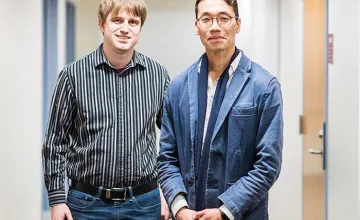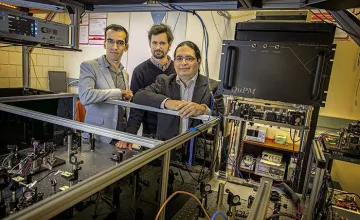As our society grows increasingly dependent on electronic networks for managing everyday life, running our economy, and defending the nation, cybersecurity has become one of our most pressing challenges.
Can we protect the power grid, telecommunication networks, financial data, “smart” products, and our private information, while still enjoying the benefits technology affords us?
AAU universities are helping answer that question, leading the way with multidisciplinary research, technology development, and education.

Martin Swany, a professor and chair of the Department of Intelligent Systems Engineering at Indiana University Bloomington, answers questions about his work with thermal imaging and electromagnetic probes.

Two Boston University computer scientists have developed a tool that could make it harder for hackers to find their way into networks where they don’t belong.

Researchers at Stanford University have developed a new system for aggregating usage reports from personal devices that emphasizes maintaining the user's privacy.

A team of researchers at Stony Brook University has developed a technology and prototype device based on quantum mechanics designed to prevent network hacking.
Explore More: Safeguarding the Connected World
You can sort by specialty area and/or by university.
One illustrious career in computer sciences at the University of Wisconsin–Madison can be traced to an anxious mother, a cocktail party conversation, and a “dead boring” job — plus a fascination with low-level machine code, a subject that many computer scientists disdain.
Recognizing the importance of a more integrated approach to combating data breaches and security failures, MIT publicly launched three new MIT research efforts aimed at addressing the technical, regulatory and managerial aspects of cyber security.
The Center for Identity has developed a game for children as part of a curriculum for 8 to 10 year olds. The web-based game allows players to share various types of information on a simulated social media platform. Players gain or points based on their answers.
In a new research report for the National Institute of Justice, Thomas Holt found many hackers and data thieves are operating in Russia or on websites where users communicate in Russian, making it easier to hide from U.S. and European authorities.
Implantable medical devices, brain-machine interfaces and wearable technology all present intensifying privacy and security challenges. Better to build security into such devices rather than trying to layer it over them later.
Protecting Consumer Products | University of California, Berkeley | Safeguarding the Connected World
